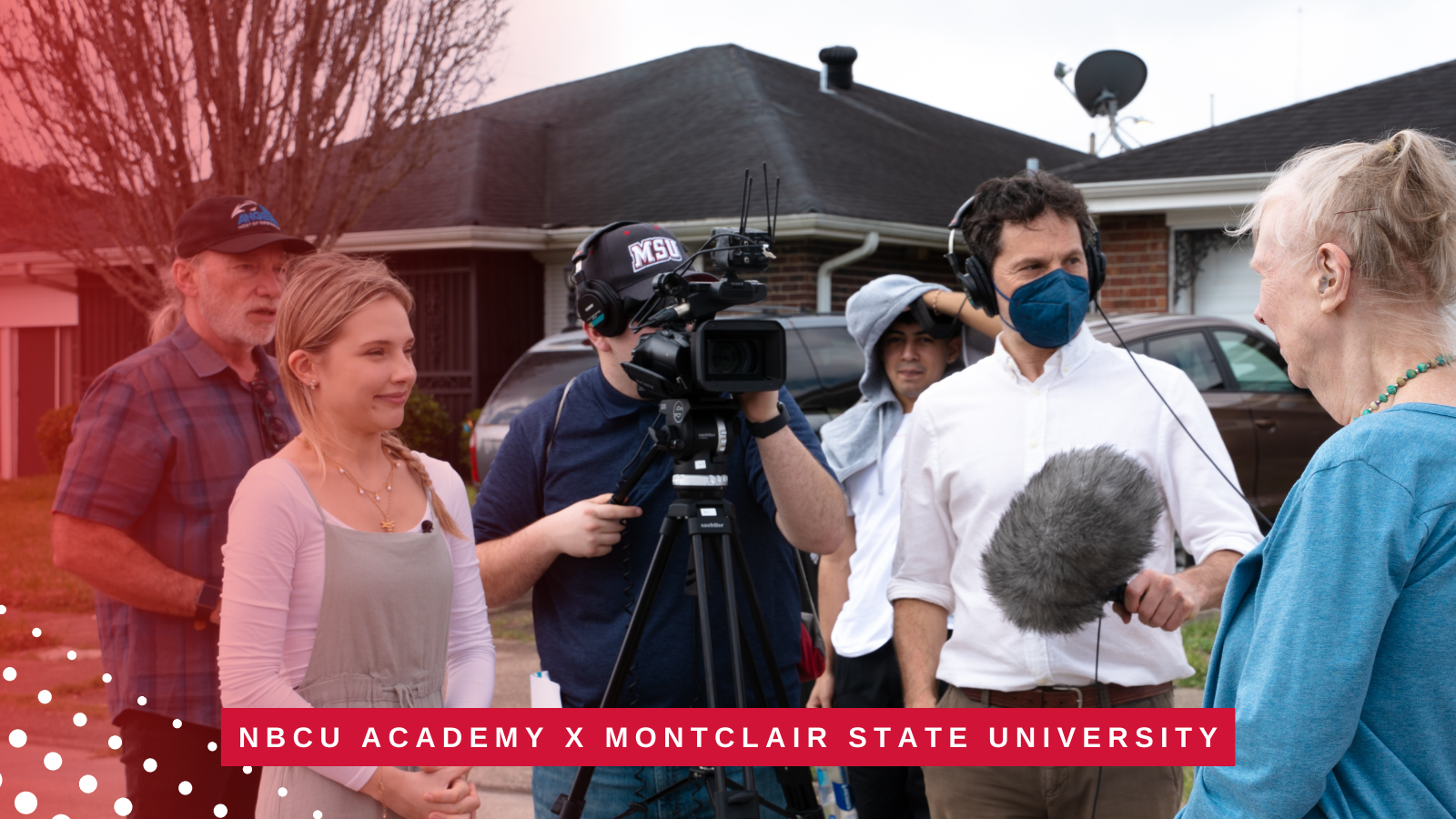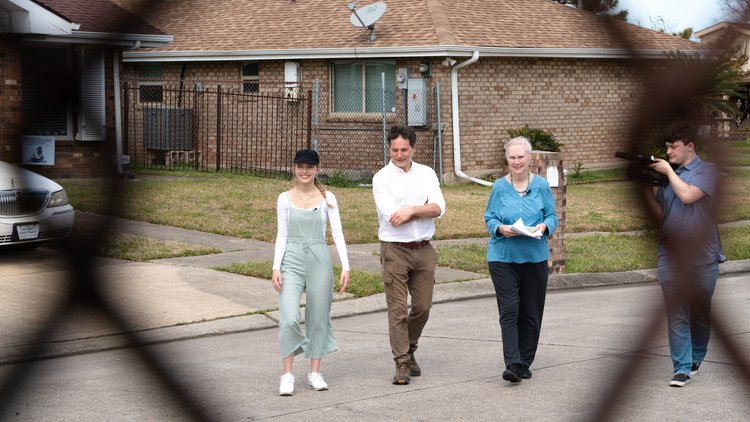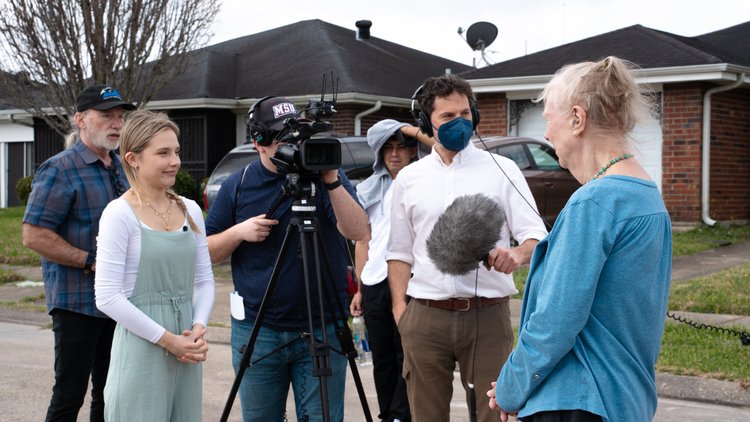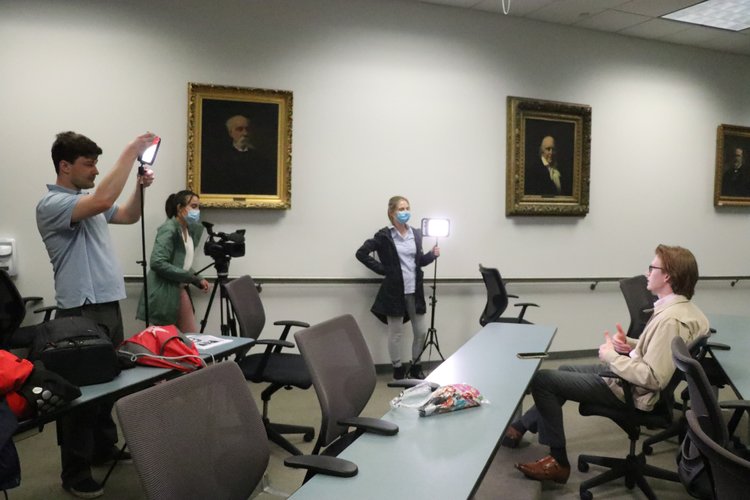
“Head of the Class” highlights original reporting and video from student journalists, in collaboration with NBCU Academy. The first in the series is Montclair State University’s “New Orleans: Raging Storms,” showing how climate change, racism and economic inequality have impacted the city since Hurricane Katrina.
In the 1970s, more than 65 homes were built on a New Orleans landfill and marketed to Black families. Nearly 20 years later, the area known as Gordon Plaza was named a Superfund site after environmental scientists found 150 toxic contaminants in the land, one-third of which were carcinogens. Today, residents are fighting the city for a fully funded relocation.
Below, Maciak explains what drew her to this story of a community pushing back against environmental racism and what she learned in the process.
On the first day of class in January, I couldn’t help but compare myself to the 14 other students in professor Steve McCarthy’s field reporting class. My inner-perfectionist voice was at an all- time high. I felt intimidated by classmates who had far more experience in television news than I had. I knew journalism was my desired career, but I felt this class would reveal whether I really was a journalist.
The class focused on environmental reporting in New Orleans. As we researched potential news stories, I gained confidence. I had spent one year at the college radio station producing weekly scripts for our flagship morning talk show and produced a package on a nearby Superfund site. There was a similar story in New Orleans — the City Council voted to allocate $35 million to residents living on Gordon Plaza, a former landfill. However, the council failed to determine the funding sources for several months when residents were attending City Council meetings. This month, the council finally revealed that it plans to divert the $35 million from stalled city projects to relocate residents and convert the land into a solar energy farm. Additionally, Mayor LaToya Cantrell may have publicly sympathized with the residents, but residents say she neglects to directly communicate with them. Cantrell failed to include the relocation plan in the 2022 budget proposal, and currently opposes City Council’s plan to use capital funds for the relocation, instead wanting to redevelop the site with the support of federal programs.
While researching the history of the site and the residents’ fierce political activism, I became more drawn to the story every day.
Spring break came faster than we expected, and we were on our way to New Orleans for a full week of producing broadcast news stories. My doubts resurfaced, and I was incredibly nervous.
Everyone around me seemed ecstatic, and I began to absorb their enthusiasm to start shooting stories. We were a team, working as one, and I was thankful for that support. On the first day, I met with Wilma Subra, a technical advisor to the Louisiana Environmental Action Network and president of the Subra Co., an environmental consulting firm. Subra advocated for the federal Environmental Protection Agency to name Gordon Plaza a Superfund site.
I soon conducted my first interview, and I assigned team members the b-roll shots I needed for the piece. The second day of production was just as efficient, even with a smaller team of students. I scheduled an interview with Lauren Godshall, clinical assistant professor at the Tulane Environmental Law Clinic, who represented Gordon Plaza residents in previous class-action lawsuits. Godshall discussed how the clinic represented the residents in at least four lawsuits. Two lawsuits filed against the city, in 2018 and 2020, were dismissed. A third lawsuit, also against the city, was settled and dismissed on May 2, 2021. The fourth, filed against the Orleans Parish school board, is still pending from 1993. The lawsuits are essential to compensate residents’ relocation costs, and have sought to legally acknowledge the wrongdoing of all official parties involved in the construction and maintenance of the housing development.
The more familiar I got with the news production process, the more confidence I gained. I asked endless questions to my peers who were more familiar with camerawork, and I strived to try anything I didn’t feel comfortable with. When I wasn’t working on my story, I was helping out on my peers’ shoots with lighting, audio and camerawork. I treated this as my journalism boot camp, and my worries started to slip away.
Until I got sick.
Five days into the trip, I woke up at 3 a.m. with chills and a fever. I immediately notified my professor and was transferred to isolation. I took a rapid Covid test and PCR test and quarantined while awaiting results. I lost two days and was disappointed. My story was hanging on a thin line, and I started to believe that it might not come through.
Everything changed when I found out several classmates were generous enough to take over my story and finish shooting it. Solana Brol, Louis Biondolillo, Drew Mumich, Talon Lauriello and Ryan Breyta helped shoot my most important interviews and events. They attended a City Council meeting and a rally organized by Gordon Plaza residents. This helped visually capture the resilience and activism of the residents. A day later, they shot my most important interviews with the residents themselves. I was beyond thankful, because without their help, my story would have fallen through.
Ironically, getting sick was important to my personal growth. Although I was Covid-negative, I realized that stress was a huge contributor to me getting sick and I had overworked myself without realizing it. I came to realize that I needed to believe in myself more and trust that hard work and dedication was all I needed to become a better journalist. I needed to accept that my strongest assets and skills are valuable, and that I shouldn’t punish myself for the areas I need more work in. In fact, recognizing this so early in my career is a perception that will motivate me to keep innovating and get better at my craft.
The day I received my Covid test results, I went back out to shoot. I finished strong and more accomplished than ever. I feared I would have to fend for myself, but this trip proved me completely wrong. I realized that working in a positive newsroom is a team effort, where people rely on one another.
Now, comparing myself to my 14 classmates, I see we all learned from our mistakes and gained valuable skills and experience. We all strive to do better, always ask questions and reach for the most ambitious stories. That’s how I gained the confidence I need to excel in this field.





